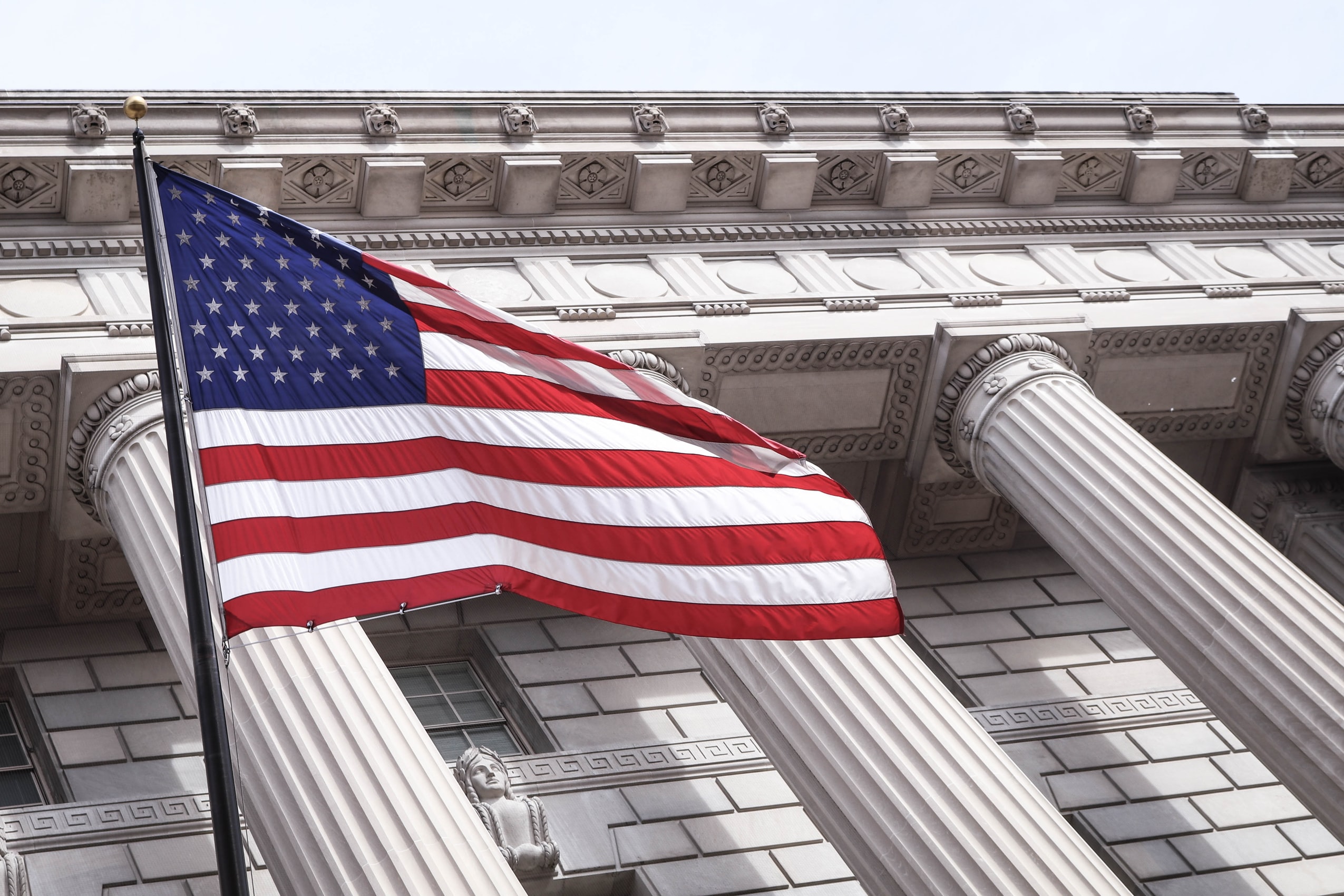What the U.S. Election Holds for the Future of Abortion Rights
In the midst of the U.S. election, fresh anxiety looms over what the future of abortion rights will look like in the country. President Donald Trump’s nomination of conservative judge, Amy Coney Barrett, for the Supreme Court has sparked questions of whether a more conservative court could dismantle reproductive rights. The nomination comes in the wake of the death of Supreme Court Justice Ruth Bader Ginsburg, who famously worked to uphold gender equality and ardently defended abortion rights. If the president succeeds in appointing Barrett, the Supreme Court will have a six-to-three person conservative majority. Republicans are rushing to get Barrett confirmed before the presidential election on November 3rd, 2020. Democratic Americans fear that a conservative majority court could overturn its own past jurisprudence holding that regulations cannot place an undue burden on those seeking abortions.
Amy Coney Barrett currently serves as a judge on the U.S. Court of Appeals for the Seventh Circuit. She has made at least two judicial rulings in the past restricting abortion access. She has also stated that abortion is “always immoral” and that she does not believe the court will altogether strike down Roe v. Wade — the 1973 landmark decision that ensured abortion as a constitutional right — but rather that the court might change how much power individual states have in restricting abortion access.
President Trump himself has spoken with confidence of Barrett’s right-leaning views.
“She is certainly conservative in her views,” President Trump told Fox & Friends Weekend. He also mirrored Barrett’s statements, saying that the power to restrict abortion access might be given “back to the states.”
President Trump has also expressed a desire to deconstruct the country’s current abortion rights. During his 2016 campaign, the president promised outright to appoint a Supreme Court justice who would “automatically overturn Roe v. Wade.”
The president has not always been so staunch in his pro-life beliefs. In a 1999 interview with NBC News’ Meet the Press, Trump describes himself as “very pro-choice” and went so far as to term himself “pro-choice in every respect.” When asked if he would ban third trimester abortions, Trump replied “no.” It is this lack of fidelity to one strain of logic that has come to define Trump’s presidency. Moreover, this ideological flip-flopping highlights how the president is using pro-life rhetoric as a tool for his own self-preservation. He understands the zealousness of the religious right, hoping that he can ensure their vote if he pantomimes their dogma.
Republicans have been criticized for moving forward with Barrett’s nomination so close to the election. There is apparent hypocrisy in allowing President Trump to move forward with the nomination with the presidential election less than one month away with some states already in the process of casting their votes. In 2016, Barack Obama attempted to appoint Merrick Garland to replace the late justice Antonin Scalia and was prevented by a Senate Republican majority. The Republican majority refused to consider the nomination on the basis that, because it was Obama’s last year as president, the next elected president should be the one making the nomination. The refusal to hold a hearing or vote on Obama’s nomination was unprecedented. Garland’s nomination lasted from March 2016 to January 2017, when Obama’s presidency ended. The seat was eventually filled by Neil Gorsuch, appointed by President Trump.
If the president is successful in getting Barrett appointed, he will have appointed a third of the justices on the Supreme Court.
What seems like a struggle between sects of the American population — those who are pro-life and those who are pro-choice — is actually a struggle between the American people and their representation. According to an NBC poll, the majority of Americans do not want to see Roe v. Wade overturned. The Wall Street Journal reported on a qualitative study that surveyed 217 Americans and found that most do not fall under either pro-choice or pro-life categories. The researchers engaged the subjects in conversation, and most Americans consider the question of abortion with a variety of factors in mind, such as the health of the mother and child, the circumstances surrounding the pregnancy, and the financial and emotional readiness of the parents. The researchers noted that these are the same factors considered by people getting abortions themselves. The views of Americans are far more complex than the pro-life/pro-choice categories. There is a clear dissonance between the political rhetoric that dominantes the issue of reproductive rights and the lived reality of the populace. Even among Barrett’s fellow Christians, 59% do not want the Supreme Court to overturn Roe v. Wade, according to Pew Research Center.
A six-three conservative majority is rightly frightening for the menstruating population. However, there is no way to foretell how the justices will rule on individual cases. Including Barrett, the only Supreme Court justice to have openly denounced Roe v. Wade is Clarence Thomas. The concern more so lies in that the court has the power to rule in favour of restricting abortion access should they chose. A conservative majority court could re-assess multiple past liberal rulings, such as the legalization of gay marriage. Over the course of the last century, minority and marginalized populations have invested decades of energy into fighting for the rights currently insured under the constitution, and for them, it is a frightening future to look toward.
The first abortion case to come before the new court concerns the prescription pill, mifepristone, which is used in conjunction with another drug to induce abortions during early pregnancy. The case could result in further restriction being placed around access to the drug. This could be the first domino in a long line of further laws and regulations restricting abortion access in the United States. While this case likely won’t result in a drastic reversal of Roe v. Wade, it will indicate the temperament of the post-Ginsburg court toward abortion cases.
